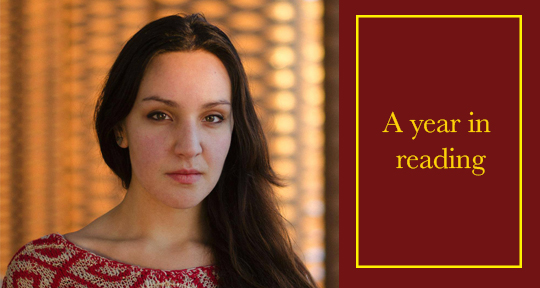It’s time to kick off an annual tradition! From today till the end of the year, Asymptote staff will take turns reflecting on his or her year in reading, revealing the pivots they took in their consumption of literature, and the intimate ways those pivots informed their lived experience. First up, our Editor-at-Large for Brazil, Lara Norgaard.
In the first painful weeks of 2017, I found myself looking to the past to make sense of the present. How did we get here? That was the question that repeatedly echoed through my head, like a drumbeat, during inaugurations, rallies, executive orders, new legislation. How did we get here?
It was on a flight to Buenos Aires during those first painful weeks of January that I gained insight into why this is so difficult a question to answer. I’d packed an old copy of the Argentinian-Chilean-American playwright Ariel Dorfman’s Death and the Maiden (1990) and, as the plane took off, found myself transported back to the first years of democracy after Pinochet’s fall from power. A woman who had been kidnapped under the dictatorship faces the very man who tortured and raped her: he enters her home, randomly, after helping her husband Gerardo get back home when he is stranded because of a flat tire. She takes justice into her own hands, staging a trial in her living room, while Gerardo, who is a member of the truth commission investigating deaths incurred by the military regime, urges her to follow democratic procedure even if the state might never recognize her story or bring the man to court. In his stunning English-language play about post-dictatorship politics, Dorfman captures a private memory that is at odds with public discourse. Though the fairly recent periods of fascism in South America predate the global bubbling up of right-wing energy in 2017, official narratives of those regimes remain incomplete.


